Chan Soo Khian: Going back home
The founder of SCDA Architects and the Soori hospitality brand hopes to revive interest in his hometown, where he is opening a new heritage hotel
WHEN CHAN SOO KHIAN WAS growing up, he lived in a shophouse in Penang’s George Town. The vernacular townhouse typology is common in South-east Asia, and many come with courtyards that let in light and natural ventilation.
“I remember rain coming into the sunken courtyard and filling it with water. It took a few minutes for the water to dissipate so it would become a reflective pool, and sometimes I would play in it,” the architect and founding principal of SCDA Architects recalls.
The endearing image of Chan as a little boy splashing gleefully in puddles is a far cry from his serious work creating glossy towers and sleek interiors around the world. His 150-strong team has shaped high-end condominiums in the likes of New York City, Shanghai, Seoul and Dubai.
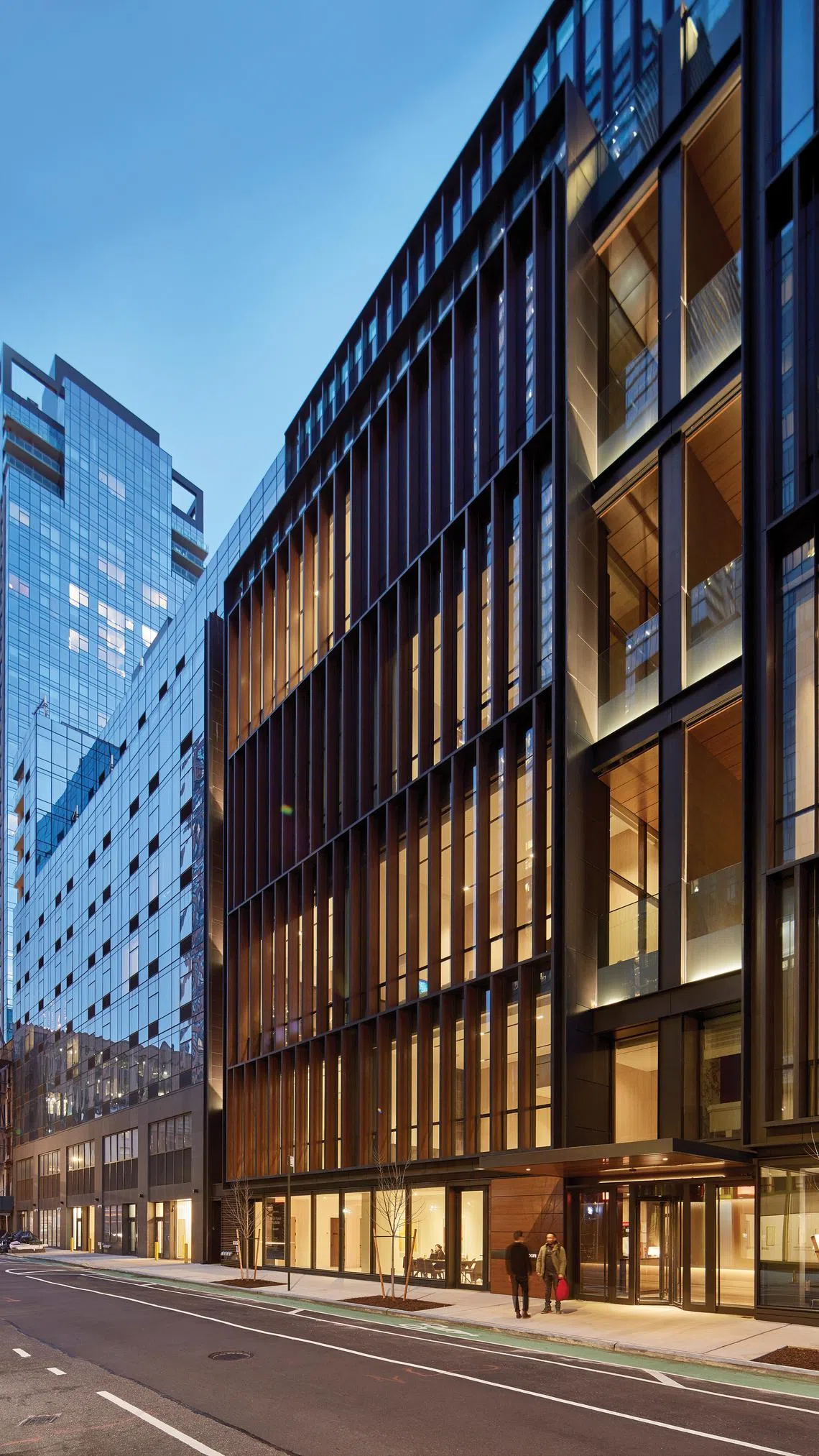
The firm has also designed for luxury hotel brands such as Aman, Janu and The Ritz-Carlton, as well as created cosy – and very costly – interiors in Tokyo’s Azabudai Hills Residence, among others.
Renowned for his distinctive design language that melds modernist principles with tropical functionality and understated elegance, Chan wears many hats. The 63-year-old even squeezes in time to be a property developer and hotelier, with personal projects such as luxury resort Soori Bali in Indonesia and upscale residential development Soori High Line in New York, the United States.
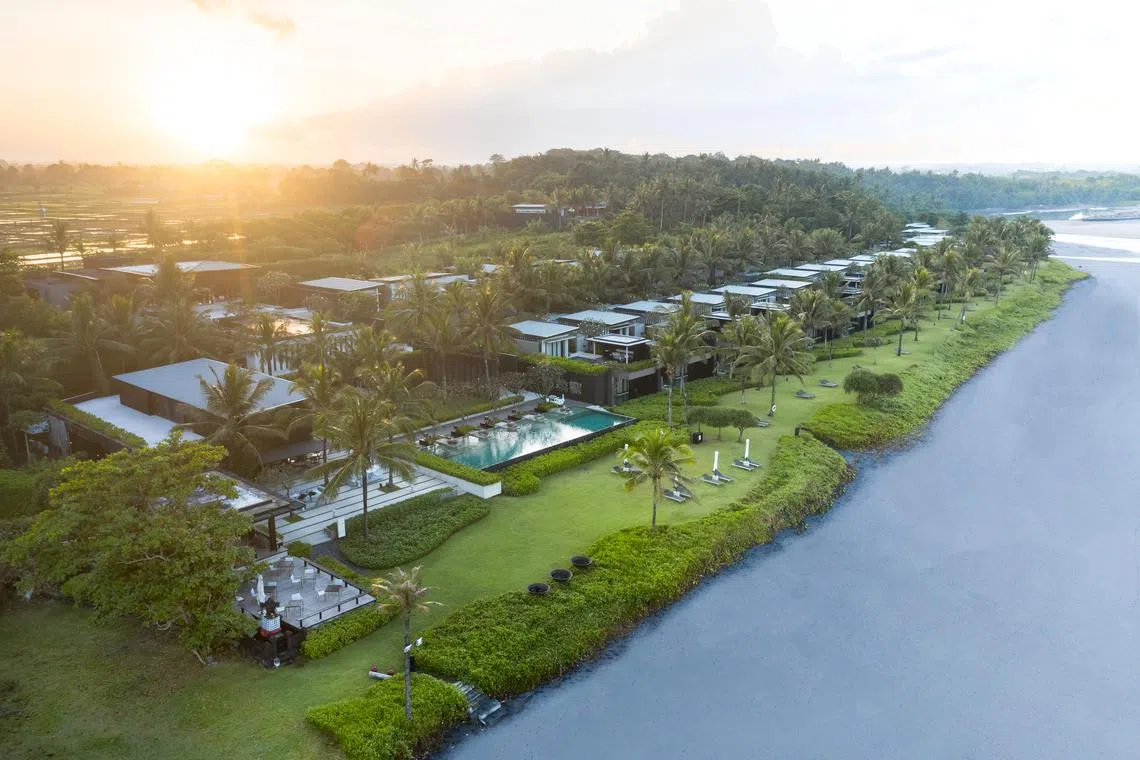
“People are confused about what I do,” says Chan. “Some say I am a developer. I’m really not; I’m just developing projects to have control over design and quality.
Navigate Asia in
a new global order
Get the insights delivered to your inbox.
“Some consider me an interior designer. In other places, I’m an architect and landscape designer. So I’m different things to different people.”
But he does settle on describing his practice as “a total integrated design firm”.
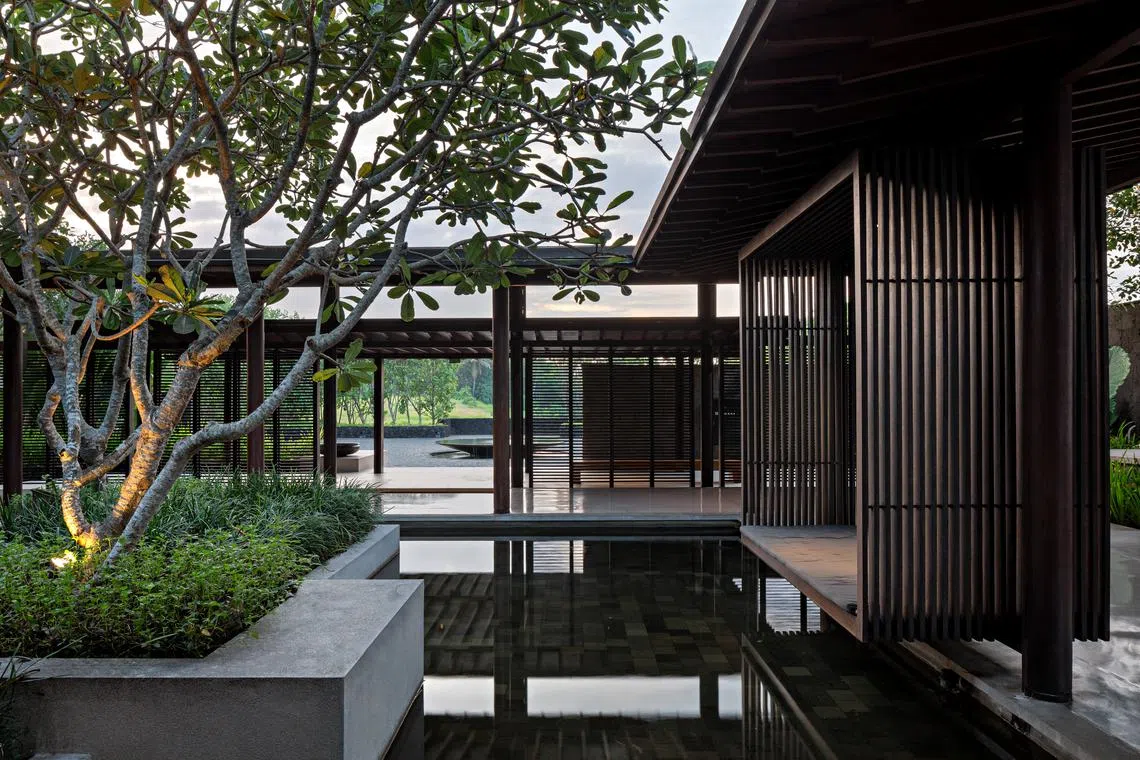
Nothing is out of bounds for Chan, who has also designed furniture and objects – and more recently, candles. He points to a trio of them in his meeting room. A perfumer in Grasse, France – the world’s perfumery centre – concocted the scent, while he designed the casing. “Isn’t this more fun than having to deal with things like GFA (gross floor area)?” he jests.
SEE ALSO
The simple reason for all his pursuits is that he has a deep love for beauty and making. “My personal passion is product design and hospitality,” he adds. They culminate in his latest project – which may be one of his smallest, but it is also his dearest, since it is located in his hometown.
The craft of memory
Slated to open this July, Soori Heritage Penang is an all-suite hotel within a cluster of 15 restored shophouses. It is located next to the Leong San Tong Khoo Kongsi, Malaysia’s largest Hokkien clan house, and in the Unesco World Heritage Site of George Town.
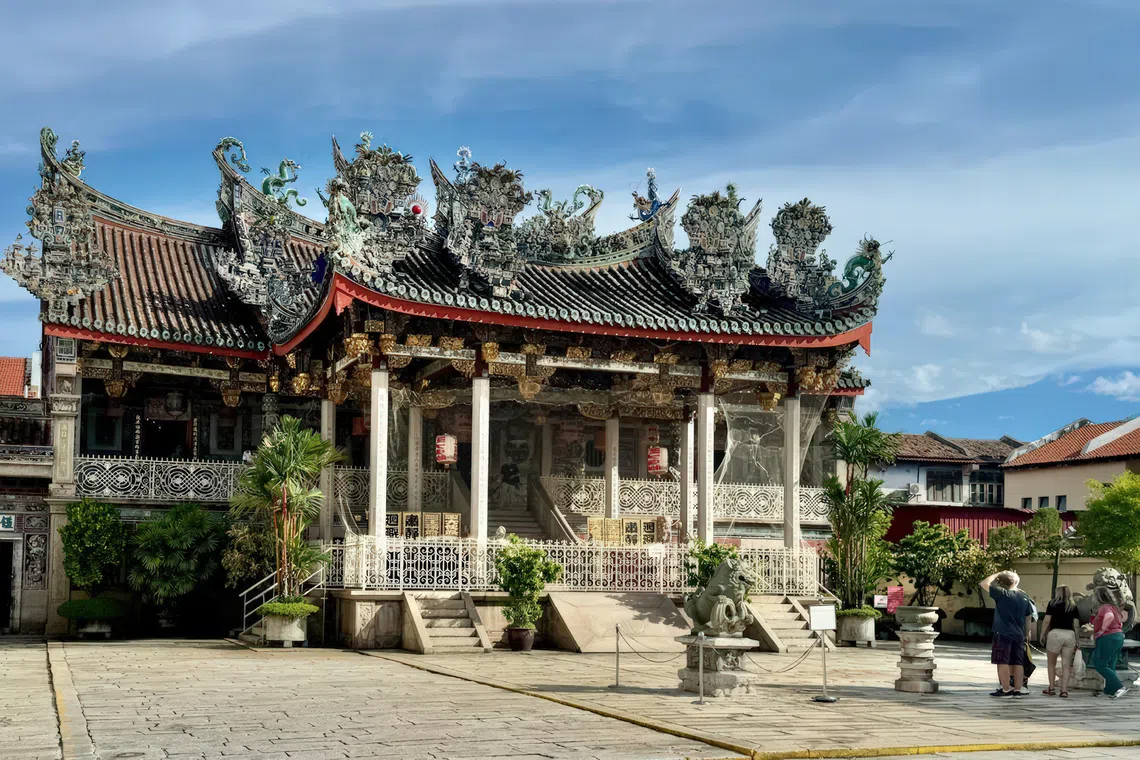
Originally from Fujian province in China, the Khoos were wealthy Straits Chinese traders in 17th-century Melaka and early Penang. Now a popular tourist destination, their kongsi was built in 1906 and anchors the granite-paved Cannon Square with its splendid colours, carvings, columns and ornamented roof.
As a boy, Chan lived in one of the shophouses surrounding the kongsi originally meant for clan members.
The 15 suites of Soori Heritage Penang – set to be a member of luxury hotel organisation Leading Hotels of the World – are spacious: Each one spans the length of a shophouse. Pitched at the ultra-luxury range, their keys will be the priciest in Penang.
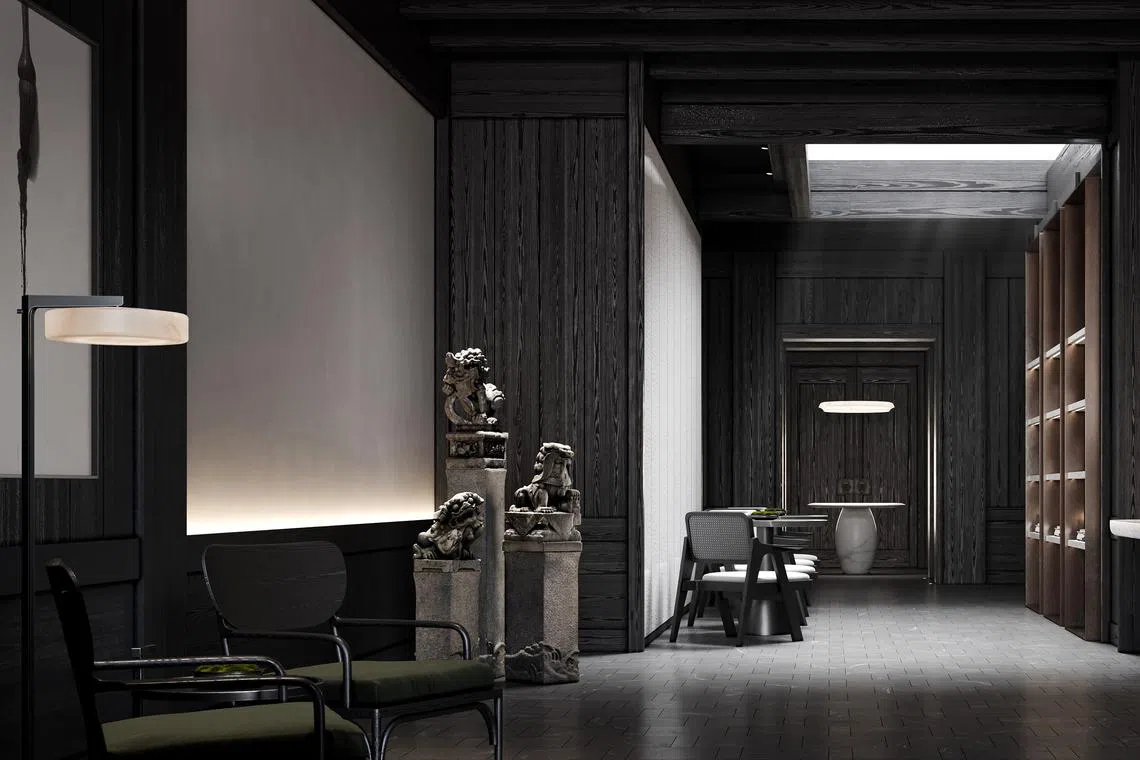
The rooms are expensive “because of the finishes”, says Chan. “Everything is customised. The quality is very high. It will set a new benchmark in Penang.”
He even designed the taps and switches himself. The bathroom sinks are carved from onyx, which also features in the bespoke floor lamps. Chan has one of those in his office, too.
The luminous, smooth stone is sculpted into a circular lampshade held like a lantern by a black stainless steel hand. “It’s made in Japan,” he says of the craftsmanship.
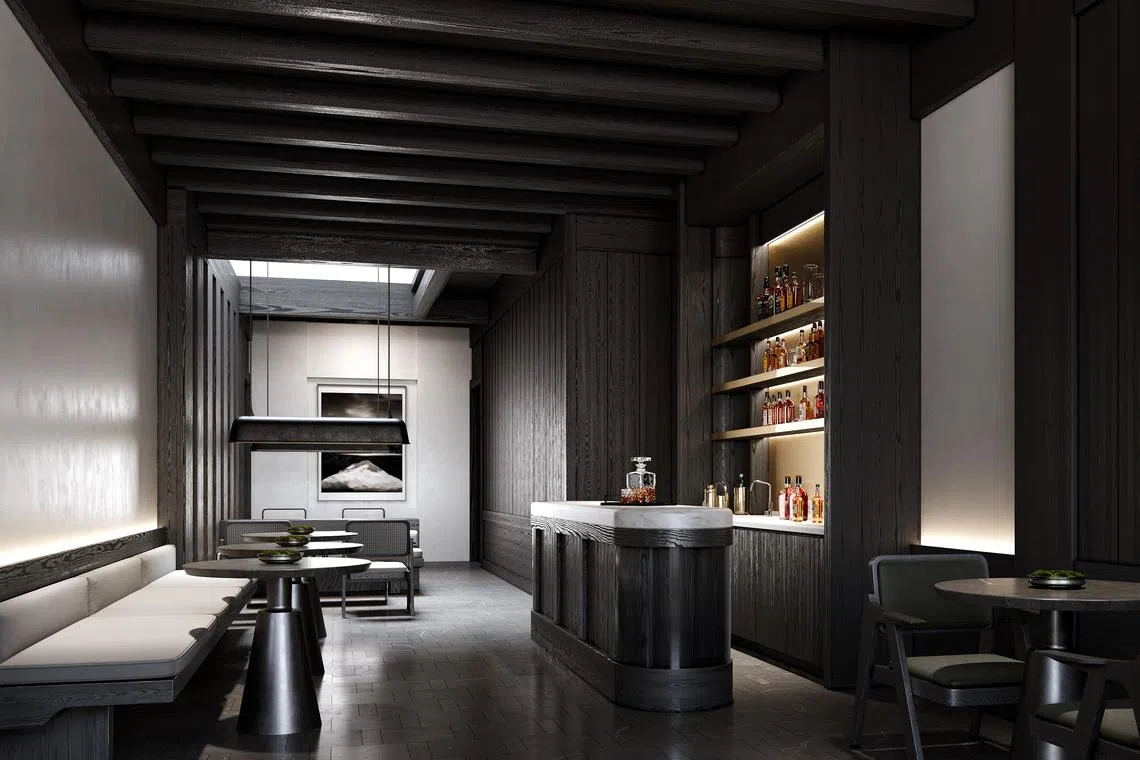
While Soori Heritage Penang will undoubtedly be an exquisite hotel, the main allure is perhaps the hotel’s narrative – of which Chan’s personal history is part.
“There’s a real connection to living there,” he admits. He left Malaysia to study architecture at Washington University and Yale University in the United States, before setting up his practice in Singapore in 1995.
Some aspects of the hotel are “based on memories”, such as the water-filled courtyard. This is resurrected in the suites as a feature pool with a stone fountain that the architect describes as a contemporised version of the traditional rice grinders used in the kitchens of his childhood.
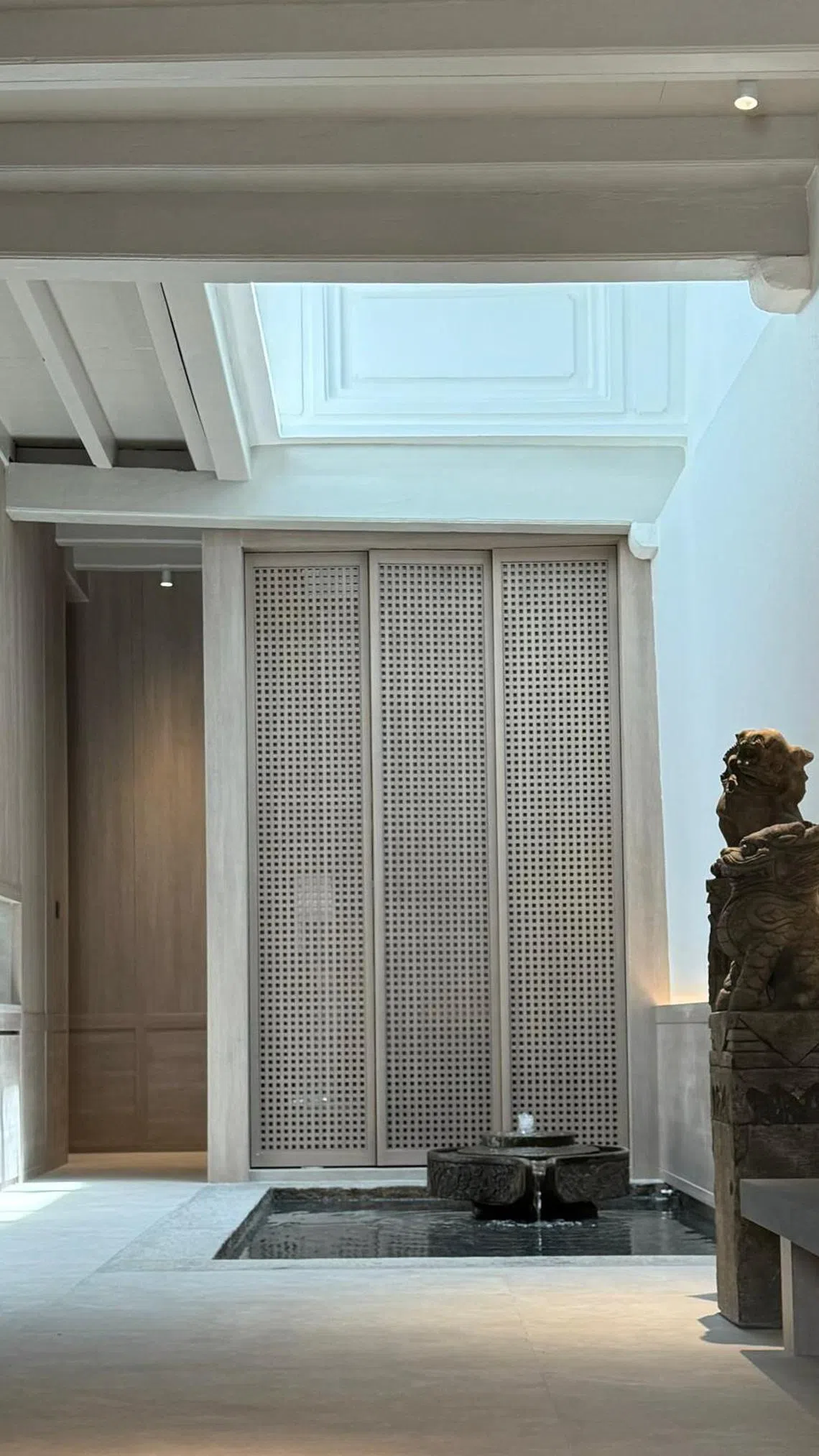
As for the hotel’s dark palette? “The earliest memory for me was of darkness, with light coming in (mainly) through the air well,” he says, referring to the architectural typology that honed his perceptions of light, shadow, texture and space.
The adage “good things come to those who wait” truly applies to Chan’s journey in making Soori Heritage Penang a reality. He faced plenty of hurdles – for example, it took years to convince the Khoo Kongsi’s 25-person committee to even agree to the idea. Many other hotel brands had tried and failed.
“It’s the kind of project (where) you need to be patient, to wait,” Chan says.
Another challenge was getting approval to use the clan house’s courtyard for guest activities. This has since been resolved, he says, with a former car park at the plot’s rear now designated as a private courtyard where guests can have breakfast amid manicured foliage, away from the tourist crowds just outside.
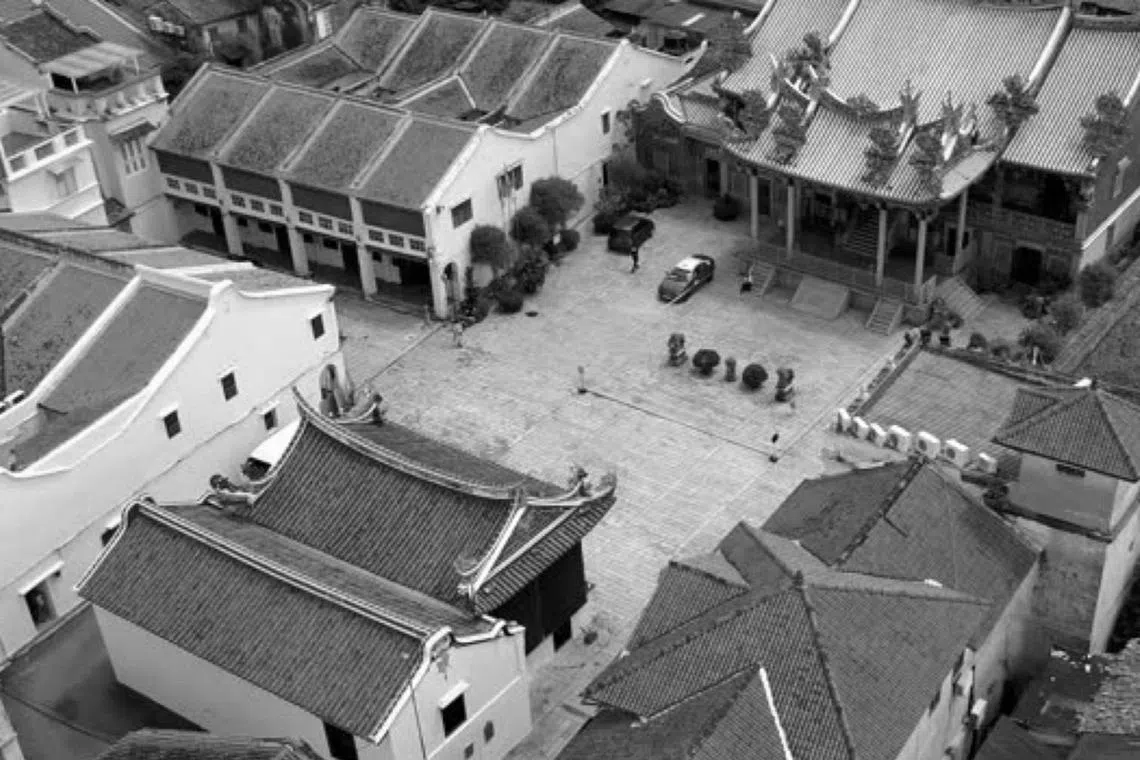
Over time, Soori Heritage Penang will be expanded into another shophouse row when the existing tenant’s lease runs out. However, there is a catch – Chan can have the space only on a 25-year contract.
While it takes a lot of tenacity to run such a project, it is clearly driven more by soul than by economics. “It is what it is,” the architect says. “Honestly, at the end of the day, the business plan is not that sound.
“How do you recoup (your expenses)? Why do you restore these shophouses when they’re on such a short lease? And how do you operate on such high-quality finishes?”
He adds that to get the quality he wanted, he engaged a Singaporean contractor – at twice the price of a local one. “It’s more (of) a personal journey to make this, and also a way to reconnect,” he admits.
But the hotel is not only for him – he hopes it will also revive interest in Penang.
Commitment to heritage
“People are excited to discover new travel destinations now, and Penang is an amazing destination. It still has Southern China traditions like hand (puppet-making),” he says, adding that the hotel will craft itineraries for guests who “don’t want to miss out on the best places”.
Whipping out his smartphone to present a photograph of himself in a workshop with a trishaw maker – more evidence of another generations-old craft in his hometown that is slowly disappearing – Chan says: “He customised a trishaw for the hotel. It’s slightly wider than (typical ones) and took him a year. I speak his dialect and had a good time working with him.”
He adds: “You see the commitment to every single object in Soori Heritage Penang.”
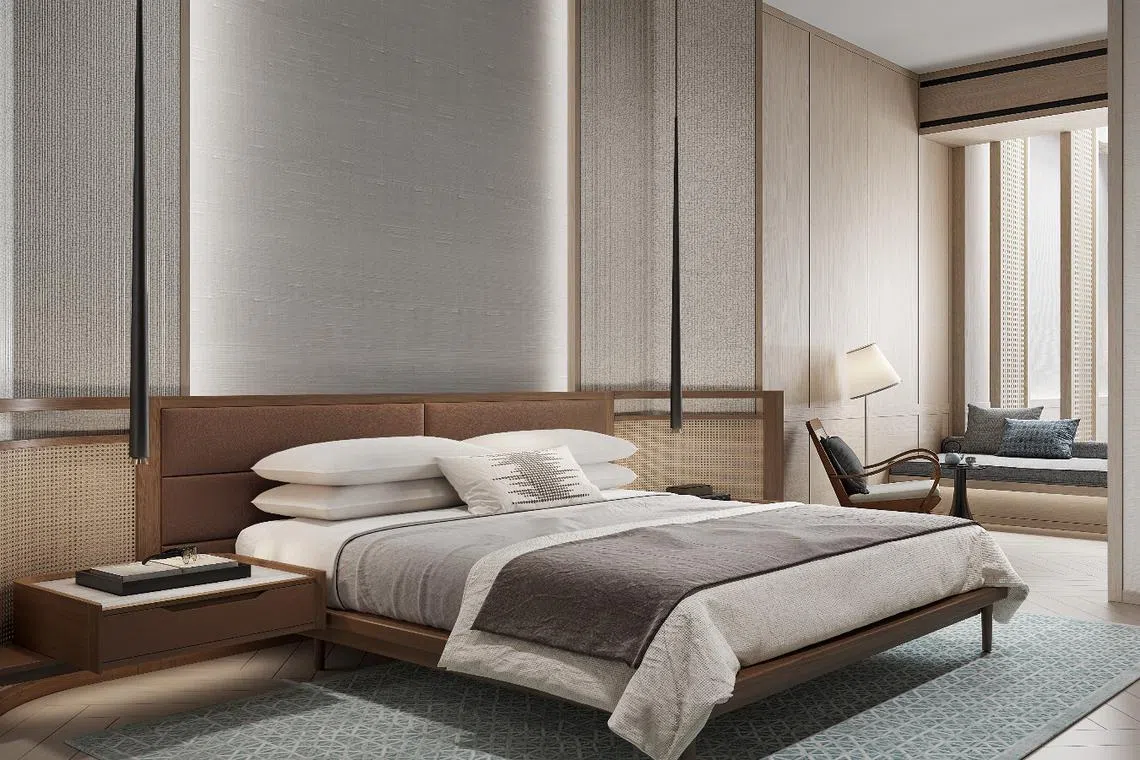
The hotel will also showcase Penang’s famous gastronomic delights, curating delicacies such as choon piah (spring rolls) and presenting them in tiffin carriers to guests.
Chan’s ideas keep coming, and being the architect, developer and hotelier means he can realise them. Case in point: Soori Bali may be 15 years old, but it will introduce a new food and beverage concept that he dreamed up.
“We’re opening an eight-seater teppanyaki restaurant, and I’m going to try the first meal. Outside, (we’ll) have gazebos, where you can hear the symphony of waves on the peninsula.”
He sourced the cutlery for the upcoming restaurant during a recent visit to Japan. On the same trip, he stayed at the Antonio Citterio-designed Bvlgari Hotel Tokyo, where he noted the details of everything from the shoe polish brand to the hair dryer placement – and even how well the shaving mirror works. His verdict: The one in this particular hotel does the job perfectly.
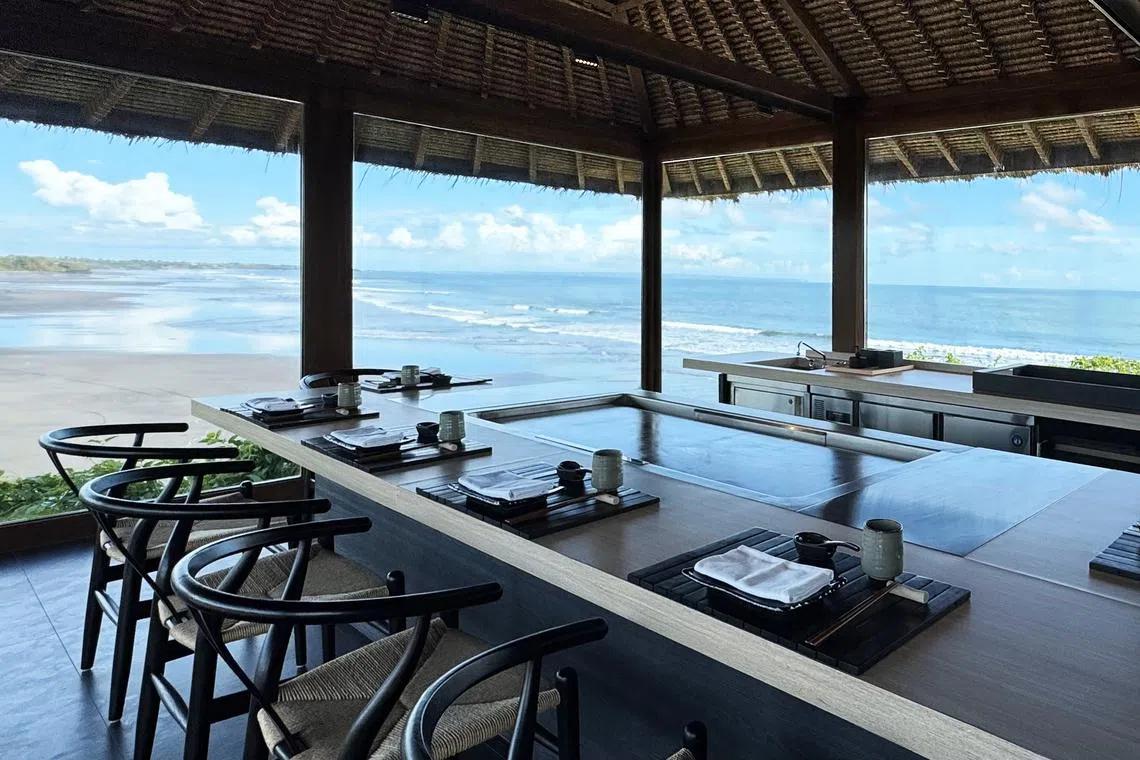
“I’m not just looking at the interior design; I’m observing (everything, even) the service,” says Chan on merging work and passion.
“I make it a point to talk to the restaurant manager. They’re always very curious because they can have long conversations with me just on operational issues.”
Do not be surprised if you are waiting for a buggy at Soori Bali and Chan comes along driving one. “When I see people are looking out for one and there isn’t anyone coming, I pick them up. They don’t know I own the hotel – they think I’m one of the staff. I actually enjoy doing that.”
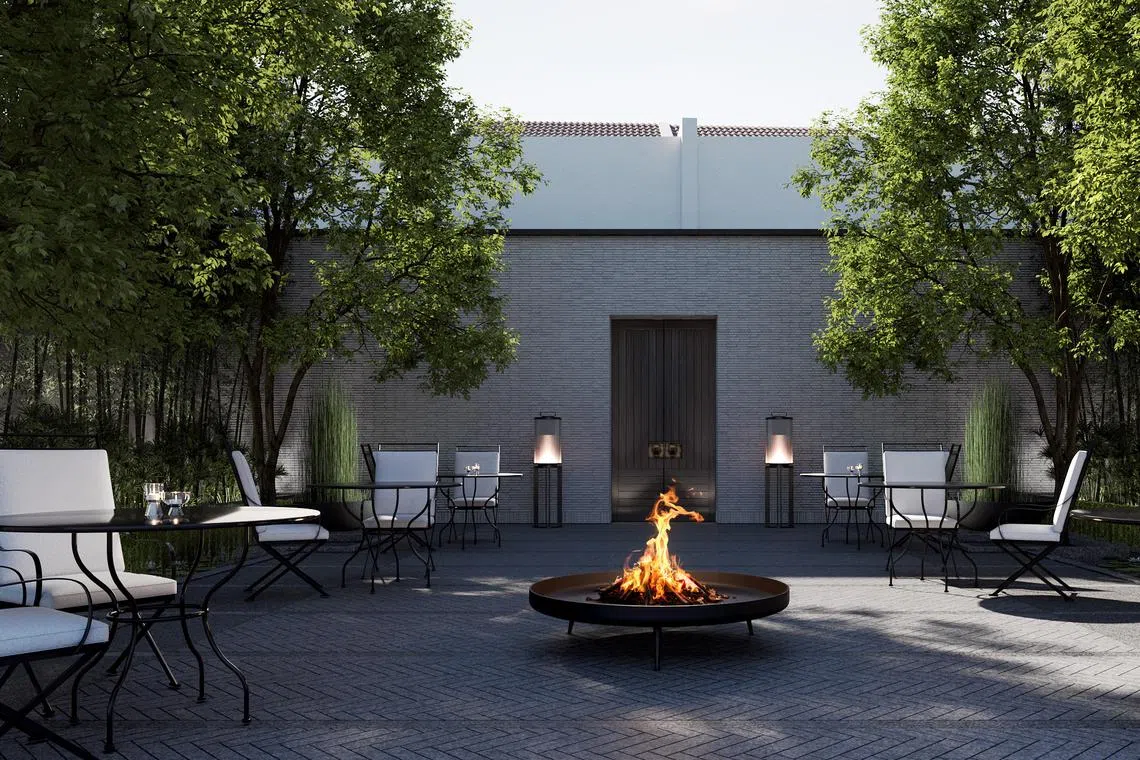
Chan plans to return to George Town during one of the upcoming festivities in the city. “I’m going to observe the street opera that they revive then,” he says.
While there, he will stay in one of the almost-completed suites of Soori Heritage Penang as a test run. “I’ll be the only one in a near-deserted courtyard.”
One cannot help but think of that little boy in the shophouse finding his own fun again.
Decoding Asia newsletter: your guide to navigating Asia in a new global order. Sign up here to get Decoding Asia newsletter. Delivered to your inbox. Free.
Copyright SPH Media. All rights reserved.










